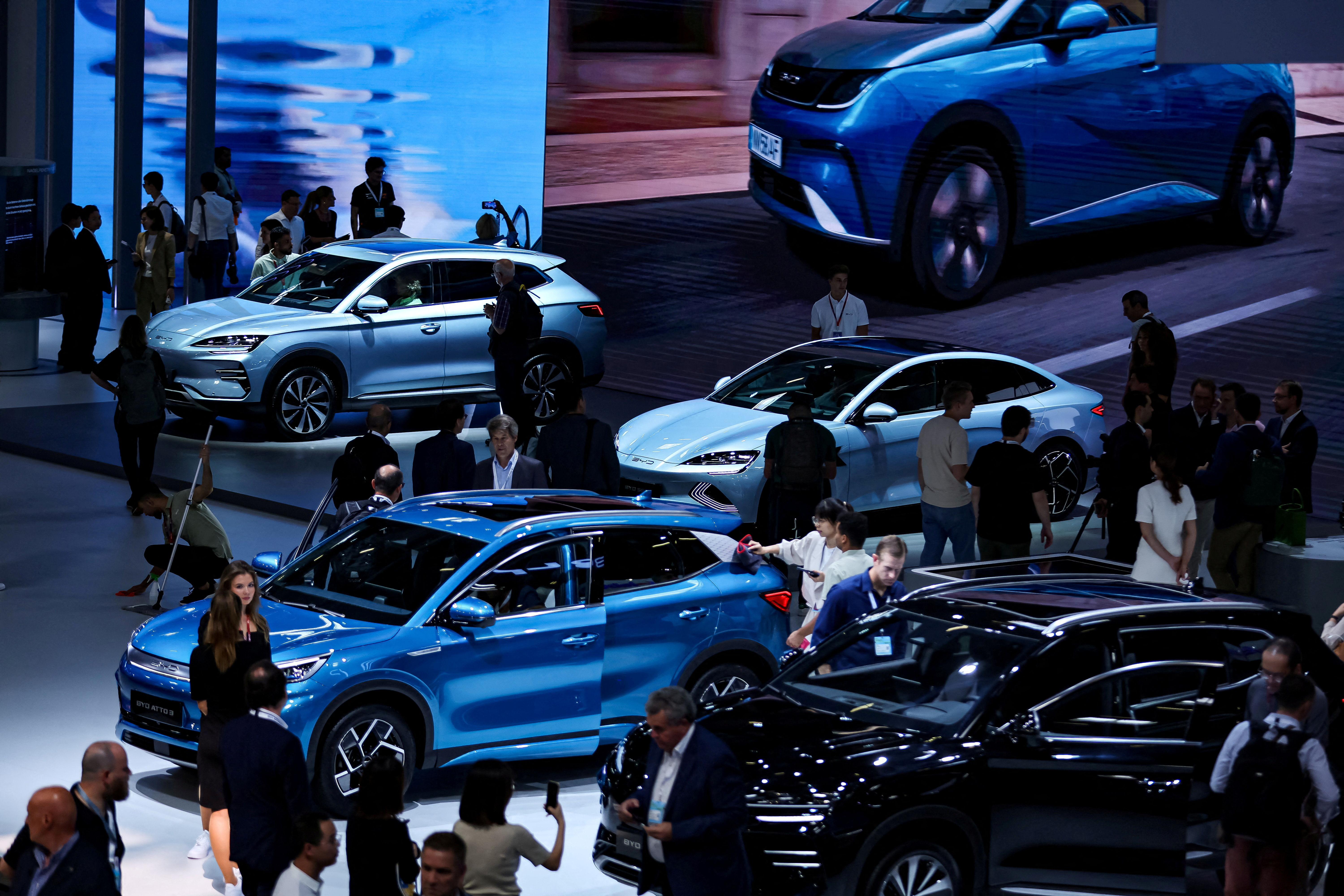SHANGHAI--China and the European Union have agreed to start talks on the planned imposition of tariffs on Chinese-made electric vehicles (EVs) being imported into the European market, senior officials of both sides said on Saturday. Germany's Economy Minister Robert Habeck said he had been informed by EU commissioner Valdis Dombrovskis that there would be concrete negotiations on tariffs with China. The confirmation came after China's commerce ministry said its head Wang Wentao, and Dombrovskis, executive vice president of the European Commission, had agreed to start consultations over the EU's anti-subsidy investigation into Chinese EVs. "This is new and surprising in that it has not been possible to enter into a concrete negotiation timetable in the last few weeks," Habeck said in Shanghai. He said it was a first step and many more will be necessary. "We are far from the end, but at least, it is a first step that was not possible before." The minister had said earlier on Saturday that the European Union's door was open for discussions regarding EU tariffs on Chinese exports. "What I suggested to my Chinese partners today is that the doors are open for discussions and I hope that this message was heard," he said in his first statement in Shanghai, after meetings with Chinese officials in Beijing. Habeck's visit is the first by a senior European official since Brussels proposed hefty duties on imports of Chinese-made electric vehicles (EVs) to combat what the EU considers excessive subsidies. Habeck said there is time for a dialogue between the EU and China on tariff issues before the duties come into full effect in November and that he believes in open markets but that markets require a level playing field. Proven subsidies that are intended to increase the export advantages of companies can't be accepted, the minister said. Another point of tension between Beijing and Berlin is China's support for Russia in its war in Ukraine. Habeck noted Chinese trade with Russia increased more than 40% last year. Habeck said he had told Chinese officials that this was taking a toll on their economic relationship. "Circumventions of the sanctions imposed on Russia are not acceptable," he said, adding that technical goods produced in Europe should not end up on the battlefield via other countries. The EU's provisional duties of up to 38.1% on imported Chinese EVs are set to apply by July 4, with the investigation set to continue until Nov. 2, when definitive duties, typically for five years, could be imposed. "This opens a phase where negotiations are possible, discussions are important and dialogue is needed," Habeck said. Proposed EU tariffs on Chinese goods are not a "punishment", Habeck told Chinese officials earlier in Beijing. "It is important to understand that these are not punitive tariffs," he said in the first plenary session of a climate and transformation dialogue. Countries such as the U.S., Brazil and Turkey had used punitive tariffs, but not the EU, he said. "Europe does things differently."







